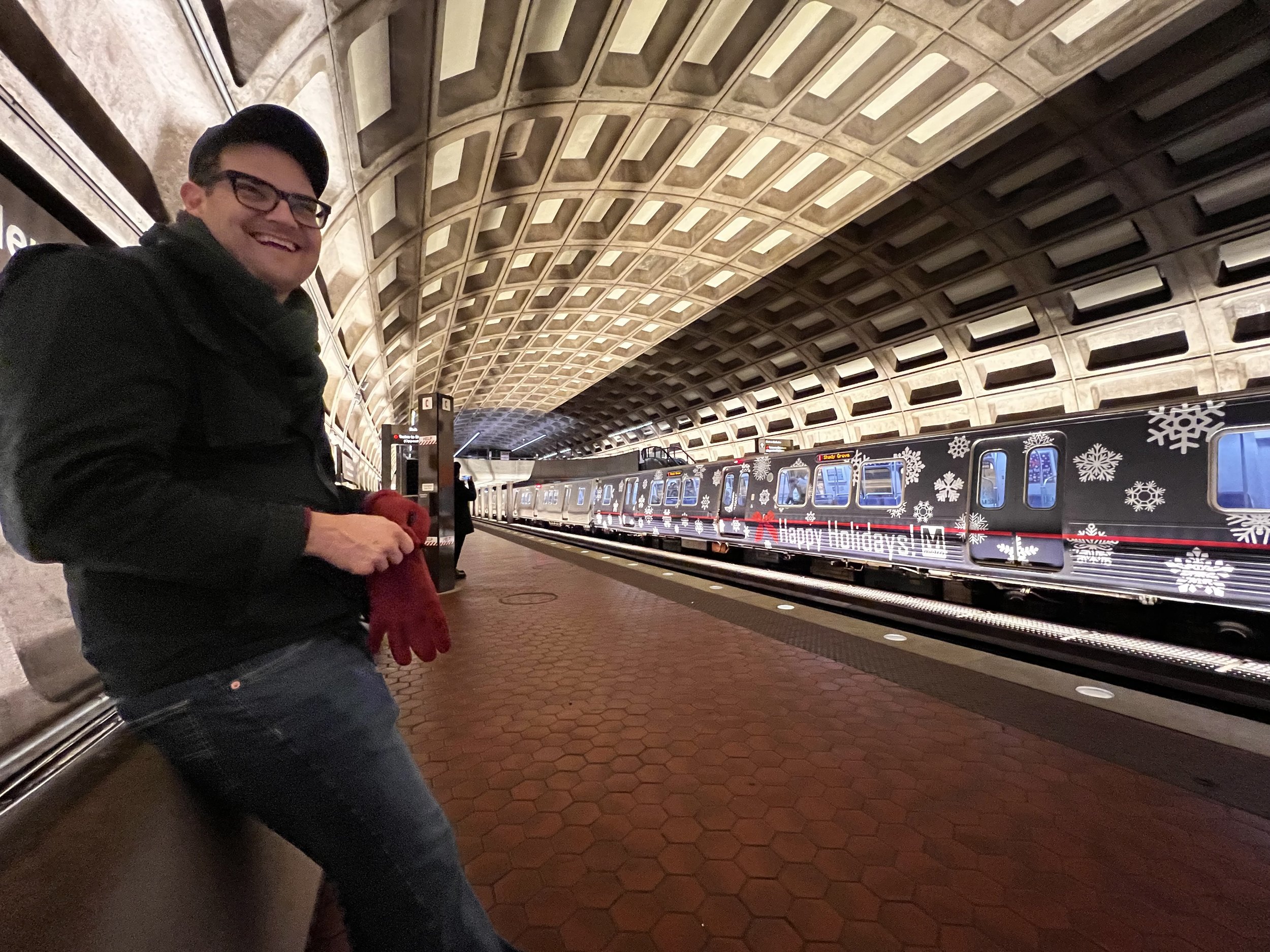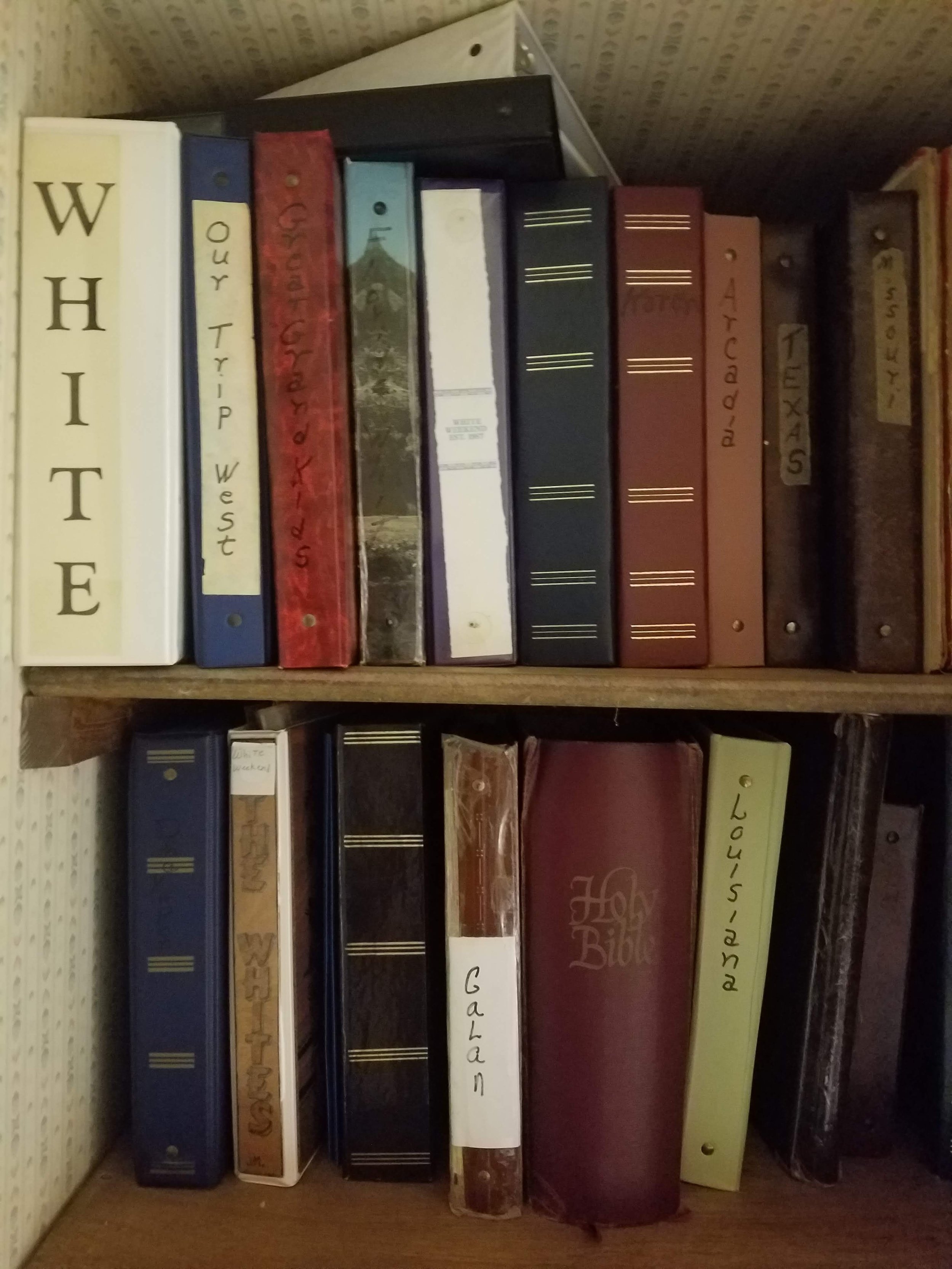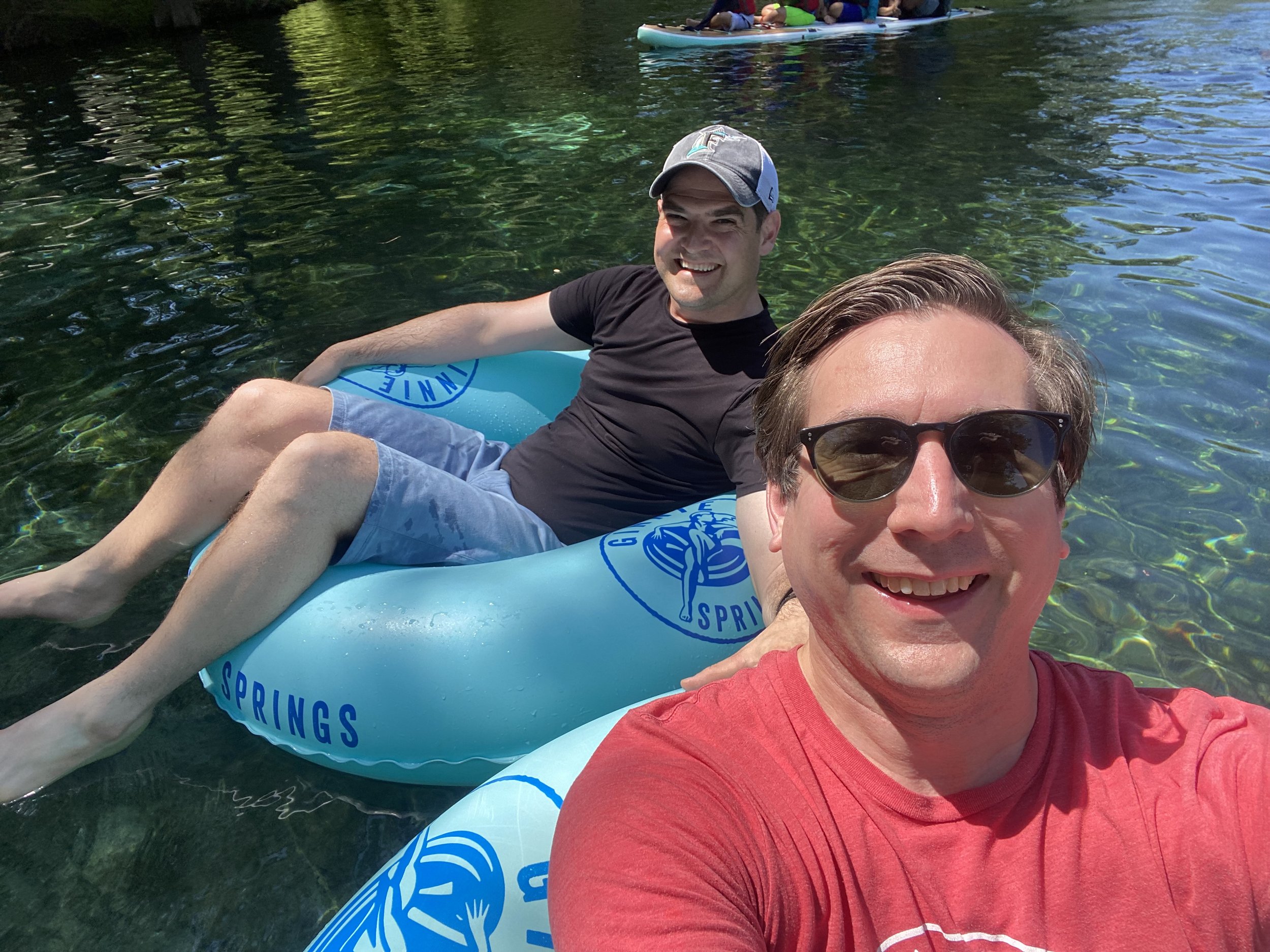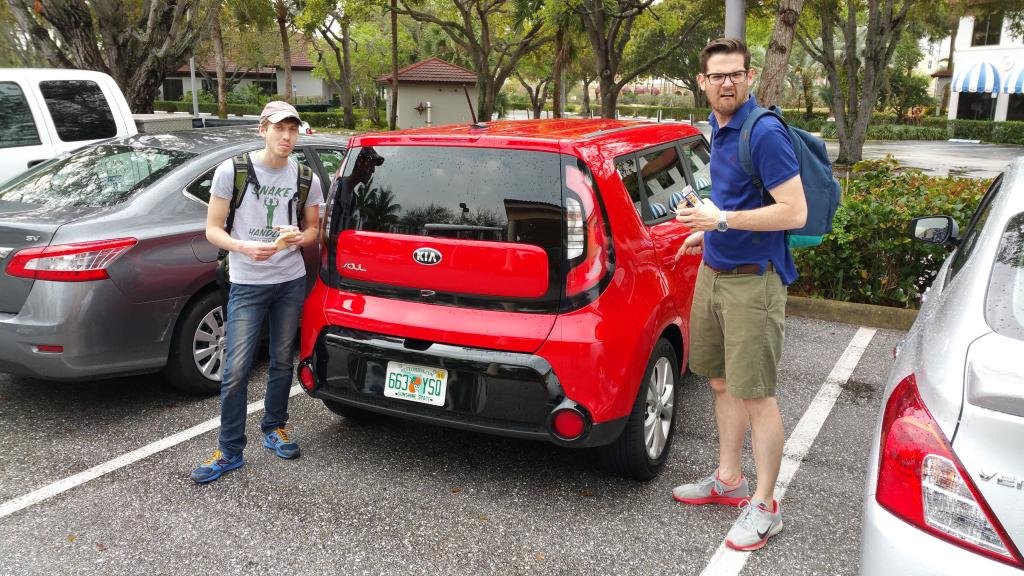Where Have I Been, Where Am I Going?
2025 is a new year and I am excited to bring some new content to my website. Last year I started blogging again – writing about topics like my family, the myths and stories they told, art, music and travel.
I hope to write in more detail about all of these topics and expand into ideas about the environment, art and culture. Thanks for reading.
So, why write about these topics at all? What do I have to offer as a writer and a thinker? I’d like to explain how I got here and how I intend to go forward in my writing.
For music, the answer is easy – the first writer’s paycheck I ever received was for music journalism, and it was a big part of my professional life through my 20s. I interviewed forgotten music legends, like Tommy Allsup, who played in Buddy Holly’s Crickets with Waylon Jennings; and Bob Johnston, who produced Bob Dylan. I reviewed dozens of concerts across all genres of music, including the Red Hot Chili Peppers, Rod Stewart, Smokey Robinson and many, many more. I recently started archiving this writing and I hope to share some of those reviews here over the coming years. I also played in bands for fun and hung around all sorts of musicians over the years.
Music was my beat and remains my passion. Over the years, my interest in music has changed. When I started writing my focus was on the groups that I liked and wanted to champion – mostly so-called indie artists like Stephen Malkmus and TV on the Radio. As someone without a Los Angeles or New York address I didn’t find much space in that crowded arena, though, and I soon turned my attention to folk and country artists, mostly from the ‘50, ‘60s and ‘70s. I knew this music well because my parents listened to it, and I was influenced by writers like Peter Guralnick, who brought a historian’s eye for context to music journalism, which can otherwise quickly devolve into a flavor of the month club.
That focus started to refine and tighten as I became a Drive-By Truckers fan around 2010. Their music was drenched in regional references and was often at war with conflicting and contradictory ideas about the American South. I became fully engaged with this mystery and my own writing and interests began to take a similar shape. An interest in Texas writer Larry McMurtry’s preference for regional writing and commentary also focused my work along Interstates 10 and 20 – roads that I have driven many times and that carry the ghosts of both American music history and my own family’s travels.
My full-time work changed around this time – I moved into higher education marketing and communications – and that shift offered me both disposable income and PTO to explore the American South a little more than I had before. I took multiple trips to Memphis, New Orleans, Miami, Birmingham, Austin, Washington D.C., and Atlanta. A move into the consulting arena broadened my travel and included my first stops in Appalachia, the Research Triangle and the Blue Ridge Mountains.
My concept of “The South” – which was largely based on the political voting bloc that emerged after the defeat of the Confederacy – started to fragment and collapse. This was a good thing and I started to see the South and its music as much more diverse and weird than I understood before.
I also moved from North Texas to North Florida, briefly became involved in local politics and struggled to reconcile the beauty and abundance of the region with the oppression and stagnation of its wealthy and powerful rulers. This struggle took an enormous personal toll on me, and eventually led to me taking a step back from my muse of the South, its culture, its people and its music for a time. Or, maybe another perspective is to say that I had to let go of the ideas I was clinging to too tightly.
I didn’t do much writing for several years, but sometime last year I began to develop a regular writing discipline. The pieces that came out – and the topics I was most interested in – were about family, stories and ideas.
I lost both of my grandmothers – both lived well into their 90s – over the last five years and inherited a treasure trove of primary source material from them in the form of family photo albums, notes, memoirs and other interesting details. I spent several years digitizing this collection to make my own little Library of Congress. After more than a decade of exploring the broader social themes in the American South (both the Southeast and the Southwest) – as well as ideas about class, race, music and culture – it was exciting to lay these personal stories over that bed of information.
This writing gets down to the root issues that fueled my writing for the last two decades – who am I? Where do I come from? How do I move forward while still remembering and holding on to my core identity in a world full of dissonant marketing messages?
I admire writers who can write about these topics with brutal, clear-eyed clarity – McMurtry and Joan Didion come to mind – but I also can’t help but notice the security that many of these writers have. William Faulkner grew up a wealthy Mississippian. Didion in a wealthy California family. Even McMurty’s family were ranchers who owned big tracts of Texas land.
My family was not so privileged. As I’ve written about in two pieces – ”Land of Flowers” and “Should’ve Been a Cowboy,” the founding myths of my family were stories of movement and insecurity. I’m curious to explore how these contrasts – security vs. insecurity, for instance – shape family stories and the identities they embrace.
I’m also about to turn 40 this year, and it seems like it’s time to tell my own stories and add them to the family lore. My own journey has taken me from a preppy, New Urbanist coastal Florida town to the Ark-La-Tex to cowboy-centric Fort Worth and deep into Southern Rock’s capital here in Jacksonville. I’ve tried hard to keep my eyes open and be in the center of the action as much as possible throughout the entire journey. I’ve worked as a plumber, a journalist, a university administrator, a consultant and fundraising professional. These experiences have given me the opportunity to see a culture from many different vantage points. I’m looking forward to bringing them together into my own viewpoint.
If music – especially R&B, garage rock, country, Western swing, rock and roll, rockabilly, punk and indie – have been the road I’ve traveled down, Florida has been the place they have always led me.
I was assigned to review Gainesville, Fla. punk band Against Me!’s show at the Ridglea Theater in Fort Worth for the Star-Telegram about 17 years ago. I’d lived in Texas for about 10 years at that point and I considered Florida to be a cultural wasteland. But the show transformed my viewpoint for several reasons. For one, the band’s political conscience articulated exactly how I felt during those late Bush years. For another, its DIY ethic and resilient defiance was something I deeply related to. And, lastly, the raw power of the music – the band kept pushing the energy level higher and higher up – was something I was yearning for amid the twee and mannered indie era largely dominated by Brooklyn-residing Ivy League grads.
Florida became the natural destination as my professional focus began to coalesce around geography and music a few years later – even more so when I began to drink in Drive-By Truckers’ Alabama lore.
I spent a lot of time and money traveling across Florida over the last decade and while there is still a lot more to learn, I feel like I am beginning to know it well.
I have spent time in Tampa, where I’ve learned about the deeply complex relationship between its cowboys (this used to be called “cow country”) and its ties to Cuba. I've spent some time in Miami and dived deeper into the intersection between Florida, the Caribbean, South and Central America.
Living in Jacksonville has opened my eyes to this place as the ragged and rugged barrier between the Solid South and wild, untamed Florida. In Orlando I’ve seen the dreams and misconceptions of new residents, and why so many move within three years. Along the way I’ve explored Air Force bases in the Panhandle, Lake Okeechobee, wealthy Palm Beach, Buffett-destroyed Key West and Midwest moneyed Naples. I’ve read at least 60 or so books on Florida in the last decade as well as countless other documentaries, articles and interviews.
My mom’s family carried a deep, abiding love for Florida in their hearts, too, so this was in many ways simply the way I reinterpreted my own genetic preconditioning.
As I have dived deeper into genealogy on both sides of my family I began to see why. Both sides have a long history in America – predating the government itself by at least a generation – as pioneers, laborers and farmers. And Florida, for all its flaws, remains the place I love the most. I came to this love naturally.
My mom’s family has a long history in Florida that goes back at least seven generations. Their pride in this country – and in Florida – is not based on a flag, or even making it great again. This is their home and where they are from and that means something to them. My grandmother loved the history, the food her grandparents prepared and their stories. My mom loved the beach, Walt Disney World and her mother. We have each intuitively kept the parts of the story we have each felt was important. My hope is to bring those pieces together in my writing going forward.
My own experiences have led me to believe that this process – of understanding who you are and where you came from – is becoming increasingly important for Americans, especially so-called “white” Americans who are not part of the wealthy and powerful classes that work hard to maintain these designations. Rich people are studied keepers of their own family stories because they understand the power of controlling these stories. Many minority groups in the U.S. – including Black Americans, Italian Americans, Mexican Americans, Cuban Americans and Asian Americans – hold their stories and identities dear as a means of resilience, preservation and survival.
But for many white Americans these stories hold almost no meaning as they strive to invent and reinvent themselves while awash in individualist and capitalist ideas that encourage them to be little more than a marketing demographic and a voting bloc. They are always striving to be part of that powerful and wealthy club – and never gaining access. But while race is a critical and essential issue in American – and Southern stories – other ideas, like class and culture, are too, and Southerners like me would be wise to examine where they came from to better understand where they are going.
There is no Stax Records without Donald “Duck” Dunn and Steve Cropper. No Muscle Shoals Sound without David Hood and Norbet Putnam. Our stories down here are complex and interwoven and worth exploring and learning from as we look for ways to move forward in peace and progress. Look closely at these stories and you will find shameful behavior – racism, violence, and vice – as well as growth – learning, resilience, compassion. My own experiences have helped me to better understand myself and the unconscious ideas I’ve carried forward from the last four generations or so and I hope to share more of them here.
So, thank you for going on this journey with me. Some of you have done so quite literally – driving all across this God-forsaken state with me while I ramble on about some massacre, musician or minutiae that happened here.
Some of you have been supportive of my writing and my muse. Others have challenged me and expanded by regional and sentimental thinking into something more complex and rich. Culture is about exchange and you have certainly cultured me.
Your feedback is appreciated. I don’t have a comment section on these because it’s a lot of work to maintain, but please text, email or call me. I would love to discuss more and learn and grow. That is my intention in writing. Thanks for reading.











